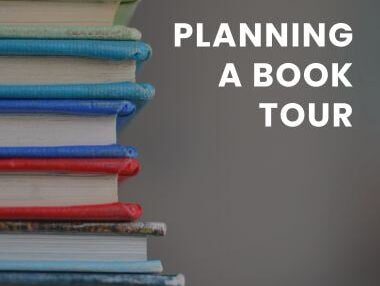Experts' Advice on Virtual Experiences and Planning Events Post-Pandemic in 2022
Jump below to see profiles on all Q&A event experts quoted in this article. Click on the links to listen to full interviews with each event professional featured.
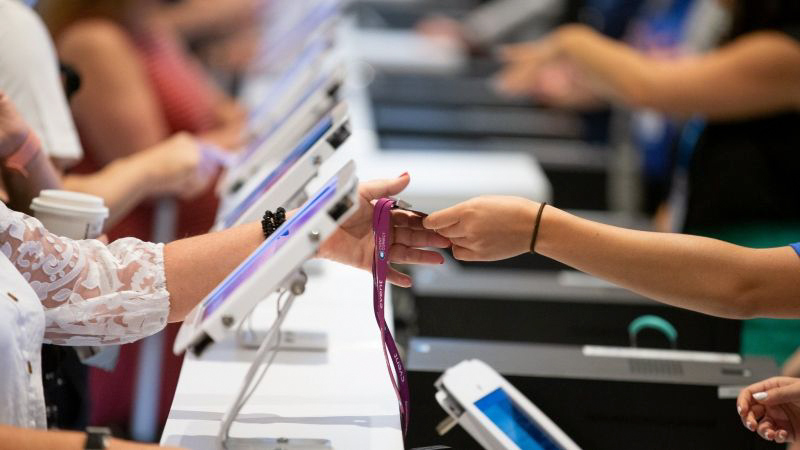
Q: Do you think, with today's technology, having a mobile event app is expected by the attendees? Should events have a mobile app for their event?
Valerie Bowden: I would say always...I mean, I think people these days are on their phone more than even their laptop. And the great thing about a mobile app is it, it really increases engagement, it can be super helpful. And it creates community, you can gamify it. So it's super fun. And you can tailor it so that people who do the in person events have a different version of the app than people who do the virtual events.
So you can make it different. And again, like especially when you can outsource this and have an event app built on a you know, a really affordable pay scale, why not? It just helps you. We've seen that it drives engagement for the content for the speakers and especially for the sponsors. So I mean, that's how you make your money is having really good sponsors on board. So you want to be able to promote them and having an app that helps people And it's gonna actually help your ROI in the end.
And an event app is not just something you put on your your checklist, like, done app is done.
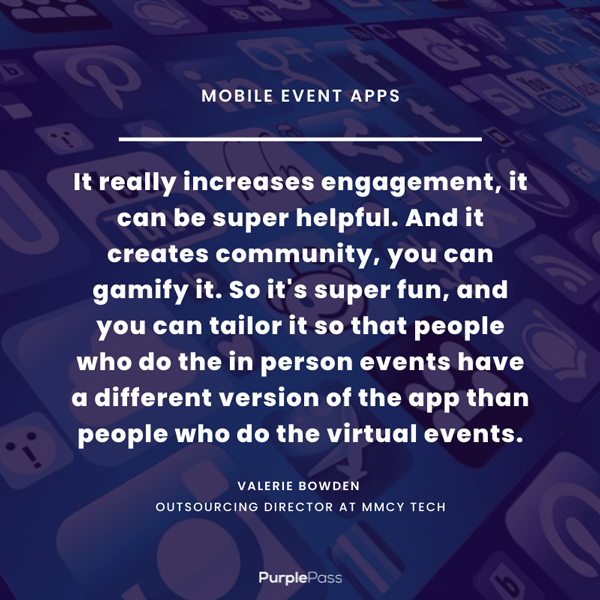
Q: What attendee and content strategies should event planners focus on when marketing events post-pandemic?
Will Curran: I think the first thing is to start with your audience, right? That's like the baseline of that equation. You got to know them really well to know what they want, right? And this idea of planning events based on what you think is best is doesn't work anymore, right? Like everyone has changed so much over the last three years that like, whatever you thought your attendees wanted, you know, three years ago, is totally changed, right?
They might have said, oh, yeah, I can't wait for the happy hour. I can't wait to meet up with everybody. But now they're like, I can't wait to like watch the new episode Moon Night on Disney plus, right.
I think the next thing is that like, it's like a dash of like, creativity is necessary, right? So we call this concept crushing the box that unless the idea that everyone says think outside the box, really what you need to do is take the box and crush it, and I toss it away and build something new. And I think that like a lot of times we're sitting here rehashing the same things over and over again. And what I've seen so so sadly, over the last two years is that I thought everyone's gonna come out of the pandemic and be like, oh, my gosh, we are doing event's wrong we need to engage our virtual audience and everyone retreated back to their same playbooks they used all day long.
And it's scary because, it's like, wait, not only are you saying that people have changed. You're doing your event exactly the same. I think what we'll see probably over the course of the next two, three years is so many events just wither away and die.
Right, they struggled to come back out of the pandemic to get people to come. But then now, with this whole everything that's changing, right, people like so events are just gonna really, really suffer, right?
The last little bit, I think, is that, think about your event strategy, not as the days that everything is happening at the event. But think about how you could create an experience that can live 365 days a year, times 10 years that lives on forever and ever. And if you can build that strong community now moving forward, you will be able to sell as many tickets as you want to your next event, you'll be able to get the right feedback to have the right content. Everything will become so much easier when you're not trying to sell the single day experience and single tickets every time. But instead, you build a community that just happens to have an event inside of it.
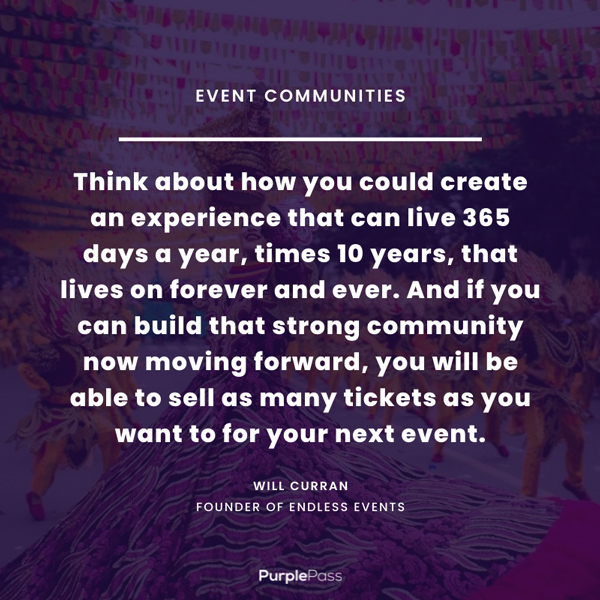
Q: For virtual events, do you want speakers that have virtual appearance and speaking experience? Or do you think someone that has in person experience is just as qualified for virtual speaking events and conferences?
Mollie Plotkin: I have to be honest, live and virtual are not created equally. And it's really important that the hiring party, the meeting planner, the conference planner, whomever I'm working with, understand that not everyone has that ability to present through that little teeny camera on the top of your laptop and be as engaging as they do in a live audience.
So it's really important that the person you're working with, like myself, is very, very honest about that. Because for a lot of people, they gate as a keynote speaker, they gain their strength by the feel of the audience. So the energy that's coming off the reaction to a joke or a comment or body language. We lose that when we do it virtually. But there are many speakers that excel virtually and I always use Rob Paler as an example. He's 25 years old. He's one of my most sought after keynote speakers and he has a gift of being able to emote and communicate through a laptop, whereas some of you know great keynote speakers just don't?
One thing I also suggest is, you have to kind of pull back and have a little bit of common sense as well, at times when it comes to virtual people might be useful keynote that lasts 40 minutes. And then as followed by maybe 20 minutes, Q&A. Listening to someone for 40 minutes on a webinar is a really long time. Think of the most fascinating person you've listened to, and then still say, can I sit still, for 40 minutes at my dining room table, looking at my laptop, listening to them.
There is a formula and we're big believers in breaking it up.
So maybe a 20 minute keynote, followed by a breakout session by a Q&A, and then a final five to 10 minutes of wrapping up the keynote. Break it up a little bit, make it interactive. And if you have a keynote, and you have a slot that it has to last for, let's say 35 minutes, 40 minutes, really recommend that there be an emcee as well, someone who could facilitate the conversation. We also see our people turning off their cameras, because that means they may not be listening anymore, and to be able to help keep the program moving as well.
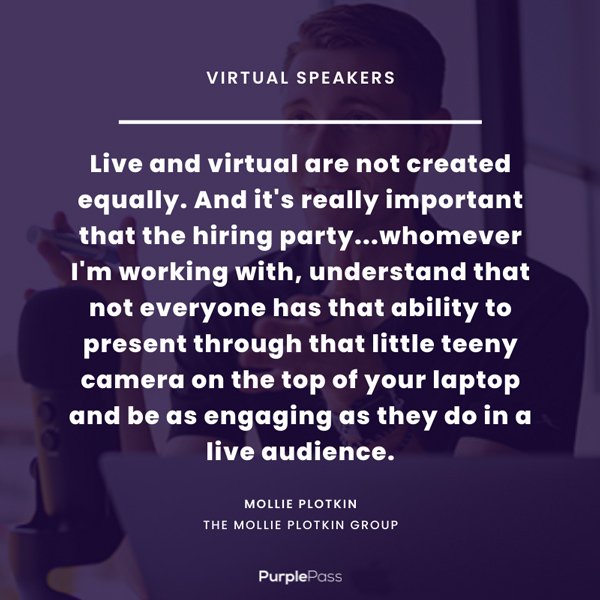
Q: With so much content out their online, what tips do you have when it comes to creating digital content and creating a captivating event experience that keeps an audience online?
Ike Singh Kehal: I think it's going to be on us to really figure out and adapt to creating content that actually works in the digital realm. And understand that I always take the example of captivated. So we have a captive audience, when it's an in person event, you're pretty much captive, it'll be up there, it flew in, they drove in, they have a hotel, and they will be with us for three, four days. They kind of are like ours. So that's a captive audience.
The online audience needs a captivating experience in order to get their mind share, right, because there are 1000s of other options. They will not drive and they're not flying, they're not sitting there for four days. So the point is, it just pushes us as event professionals who really focus on giving the real value to the people. Events in the past have been this walled garden. Hey, give me $2,000. And just trust me, I'll give you great content. I think that is not gonna fly anymore. People are like, show me how you're gonna give me what I want, I'm not gonna give you $2,000 just for whatever.
So I think the whole concept of, for example, when you do stuff online, you watch a little bit of it, if you like the value, you pay more, I think that's what the future of events is going to be as well. It's gonna be a lot of micro payments, where you can get into experience, watch some things, if you like it, you pay more, you get more of it, and or access to exclusive stuff. And then you also get a pass to come for the in person event for those special workshops and so forth. Right?
So I think that is so stock emulating and more value upfront, because people will have so many more choices now with the amount of events that will happen and be the virtual giving the ability for people to do multiple events throughout their versus at one or two flagship events during the year. Right? So it says there'll be more content available, more events happening, and there'll be competition among all of us to make sure that our content is absolutely worth it. And the experience is absolutely worth it for people to give us their time and money. And so forth.
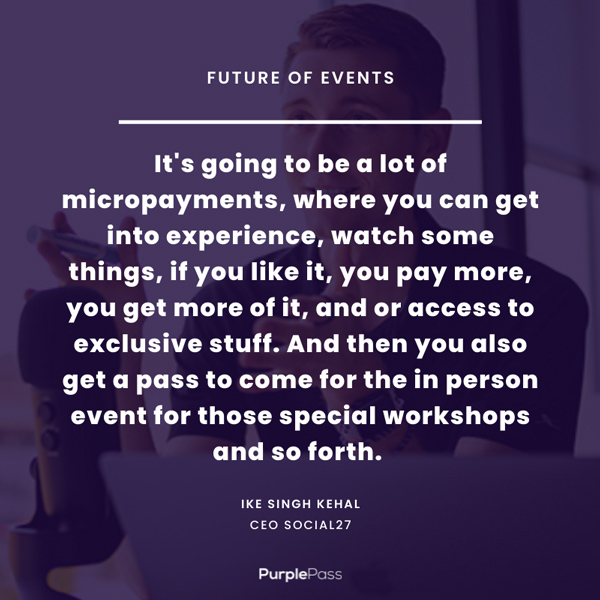
Q: What is the community model? How does it work? Why should event planners turn to this model for selling out events?
Will Curran: Think about your event strategy, not as the days that everything is happening at the event. But think about how you could create an experience that can live 365 days a year, times 10 years that lives on forever and ever. And if you can build that strong community now moving forward, you will be able to sell as many tickets as you want to your next event, you'll be able to get the right feedback to have the right content.
Think of your event as part of a community. But like if you design a community first, and then it happens to have a yearly event or a monthly event or something like that, it's so much easier for you to put that on one single platform, and then just have everyone already signed up, because they already have their login.
And maybe that part of it is even they join this community and pay a monthly fee to be part of it. And then you know, they get a discounted ticket on a ticket, or maybe their conference tickets included as part of it. Like, oh, my gosh, like, how exciting is that? It gives you this opportunity to take those like pre recorded content, like webinars and things like that, sprinkle it in as part of the community. And now it's not just about one day of the event, but you can almost turn it into there. The event is constantly going on. And I think that's an exciting future for us.
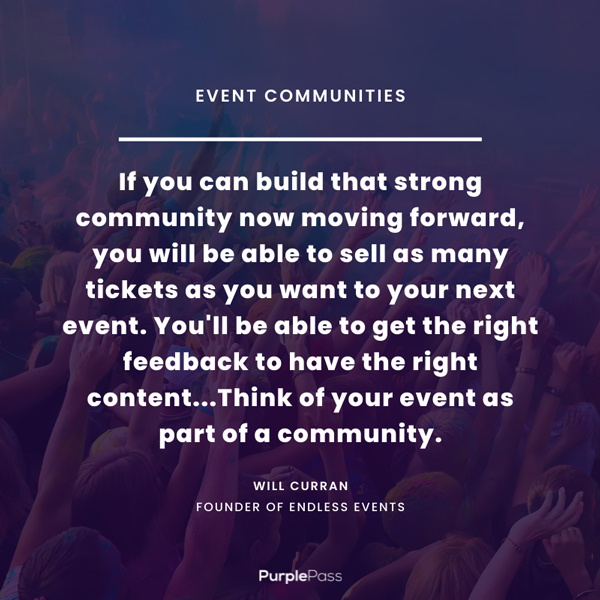
Q: Outsourcing talent and employees is an increasing trend amongst the business and event world. What positions would you recommend be outsourced for events?
Valerie Bowden: I think for event planners, the first one is the technology piece, unless you're a tech person, which I am not. Thankfully, I married someone who is and because we work at a tech company, 80% of our company is is a developer or tech person. But if you're not that, I mean, why not outsource your event registration page, you could do live IT help desk support could be outsourced? Mobile apps, I think those are some great things. So if the technology gives you a headache, let someone who specializes in loves it, do it for you.
And I think the other one is also again, like I have a special focus in our company on the SDR piece. So that's like sales reps, Business Development representatives. So you could have cold callers or cold emails sent out to either promote your events or to promote your company and help you get more clients. So I think that's a really great additional piece to outsource.
And I would also just say really quickly, that if it doesn't matter if you're a small company or a big company, I think outsourcing is the smartest thing you can do for your business. Because if you're small, you can hire so many more workers who can build your team quicker then you could otherwise. And, you know, we work mainly with Fortune 500 companies. So we're seeing these big companies outsourcing. And that's why they're getting ahead so quickly, because they can they have a bigger labor force. So outsourcing is like your secret weapon to really establish yourself and becoming a bigger, bigger company.
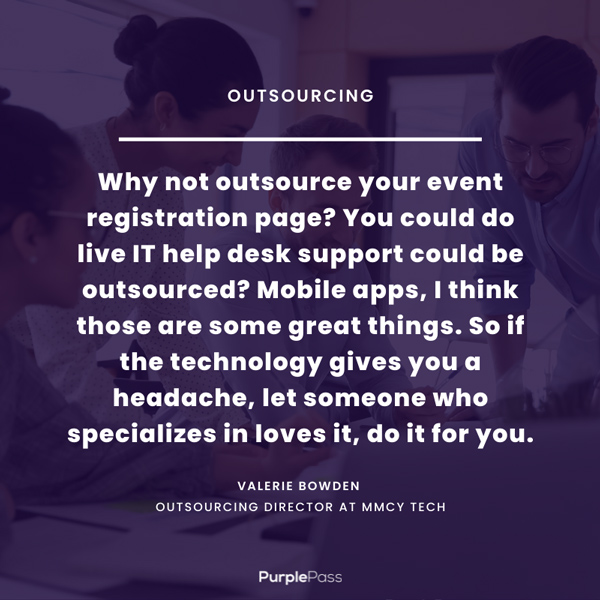
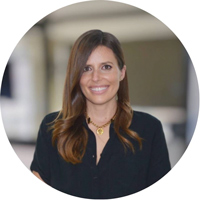
Valerie Bowden
Outsourcing Director at MMCY Tech
Listen to full episode

Will Curran
Founder of Endless
Listen to full episode
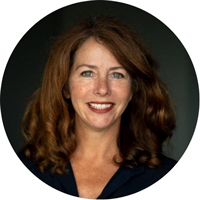
Mollie Plotkin
The Mollie Plotkin Group
Listen to full episode
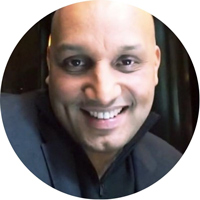
Ike Singh Kehal
CEO of Social27
Listen to full episode






